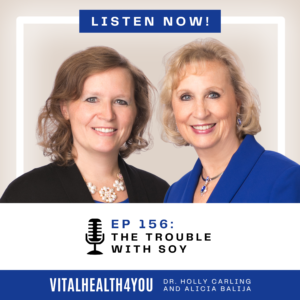Once thought to be a single vitamin such as Vitamin C, the B Vitamins are a complex of chemically related compounds, always found in groupings in nature. Vitamins are extremely complex organic substances that are needed in small amounts (not mega-dose amounts), yet are essential for life. These vitamins are powerful in action, but are dependent upon other factors to be absorbed by the body. They function as a complex, not as segregated isolates, as is so commonly found in a vitamin bottle. Today’s B Vitamins are mostly synthetic compounds that are grossly deficient in the ability to affect change as do B vitamins found in food forms.
According to Judith DeCava, nutritional researcher, “The true potency of vitamins is delivered to the cells through the combined effect of the vitamin complex, rather than a single chemical, and is a functioning mechanism. ..There is still much about food complexes that has yet to be discovered. Whole foods “harbor a whole ratatouille of compounds” that have never been segregated or manufactured by humans because, until recently, scientists did not even know they existed and do not know how many more there are.”
She also states that “Nutrients in foods are highly synergistic interactive complexes. Synergy means that the whole is greater than the sum of its parts, that the relationship which the parts have to each other is the most catalytic, most empowering, most unifying, most functional or effective part. Synergy means that 1 + 1 may equal 8, 24, or even 1,600. Synergistic function produces more and better results than any action of any part separated from the whole.”
Food nutrients are dynamic, alive, vigorous compounds, always working in combinations. B vitamins also function together as a whole and are dependent upon other nutritive substances and co-enzymes. Unfortunately, most B vitamins today are fake. They are manufactured in a lab, or processed using harsh chemicals, rather than extracted from foods.
For example: Vitamins B1, B3, PABA are principally from coal tar derivatives, ammonia and acids; Vitamins B5, B6, B8 & B9 from sulfuric acid, formaldehyde, petroleum esters or acetylene; and B12 from cobalamins reacted with cyanide. Contrast this to the food sources, such as turkey, chicken, tuna, liver, whole grains, raw nuts, mushrooms, lentils, green leafy vegetables, chili peppers, rice bran, beans, nutritional/brewer’s yeast and molasses – I’d rather have the food forms!
B vitamins are essential for growth and development, enzyme activity, energy, skin health, nervous and digestive system health, good appetite, healthy hair, healthy fetal development, and the B Complex is the quintessential vitamin for the heart. Deficiency in B vitamins can result in blood pressure abnormalities, slow childhood development, contribute to PMS and Alzheimers, and even certain cancers. And more!
According to the Journal of the American Medical Assoc., clear back in February 1942, artificial vitamins are inferior to natural complexes and are quickly excreted through the urine. Synthetics were found to be unable to correct dietary deficiency, and ascorbic acid was weaker than the food sourced vitamin C.
And according to the Journal of the American Dietetic Assoc., back in 1940, Synthetic B vitamins failed in normal growth tests while whole vitamin rich foods corrected growth.
B Vitamins are essential to health. Through the maze of B vitamins available today, be sure to get B vitamins from food, or food-sourced supplements to have optimal results.
© 2013 Holly A. Carling, O.M.D., L.Ac., Ph.D.







